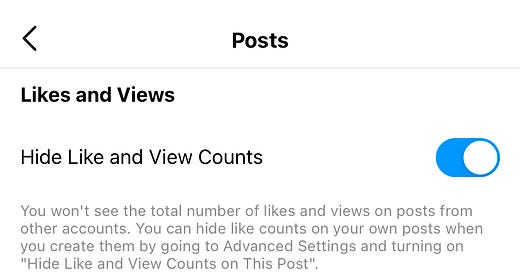Now social media wants us to live in the moment
Apps are suddenly all about avoiding likes, selfies, and 'unwanted attention.'
Welcome to Embedded, your essential guide to what’s good on the internet, published Monday through Friday by Kate Lindsay and Nick Catucci. “Get Embedded” on Twitter and Instagram. 🧩
Siri, play “Too Little Too Late” by JoJo. —Kate
There’s a part of my interview with my friend Maureen, who left social media in 2015, that didn’t make it into the final draft. We realized our conversation was less “someone on social media interviewing someone off social media” and more “the person who got sucked into social media interviewing the person who managed to escape.” Rather than me versus Maureen, it’s everyone versus social media, and social media is very good at winning.
Following our conversation, I turned off all my push notifications except for texts—which, by the way, has been the most effective action to date in making me feel less chained to my phone. That’s not good news for Twitter and Instagram, who began serving me the same pop-up whenever I logged on: Do you want to turn on notifications? You should really turn on notifications. You’re missing so much if you don’t have notifications and also you’re hurting me ow, ow, ow!!!
It’s not good business for social media companies to lose all their users, but it’s not good business for all their users to realize social media is actively harming them, either. I’m guessing this is why, in the past few months, prominent apps like Instagram and Twitter have not necessarily acknowledged the harm they’ve caused, but made moves to reverse some of the damage before it’s too late.
Most notably, of course, is Instagram’s option to hide likes. It’s still a little clunky. I can blanket hide likes for other people’s posts, but I have to hide them for each of my own posts individually. Instagram isn’t quite ready to fully eliminate the dopamine hit that’s almost solely responsible for people using it. But if you, the user, are diligent ... it works!
Earlier this week, Twitter privacy designer Dominic Camozzi tweeted out some early concepts for helping with “unwanted attention” on Twitter. This would include the ability to unmention yourself from conversations, restrict certain accounts from mentioning you, or stop anyone from being able to mention you for days at a time. These are all helpful tools for harassment, except they come *checks watch* eight years after the first high-profile harassment case, after the alt-right was allowed to flourish on the platform, after QAnon grew from online community to actual political ideology. Plus, as many people in the replies pointed out, Twitter could just hire Block Party instead.
The closer you look at the internet lately, the more it seems like everyone is trying to recreate the magic of a time before social media, even down to how we take photos. Dispo made a splash by preventing users from accessing photos until the morning after they take them, thereby encouraging them to “live in the moment.” And more apps are attempting similar experiments. Poparazzi doesn’t allow selfies. Paper Shoot Camera is an actual film-style camera that lets you access the photos digitally ... and now that I’ve typed that, I realize it’s literally just a digital camera with filters. But the point is that everyone is trying to reinvent the wheel right now, marketing the old ways as new innovations in order to capitalize on everyone’s nostalgia and exhaustion.
The real question is: Is it too late for a middle ground? The pessimist in me worries that attempting to make social media healthy is just a fad, or will be, as long as these companies have such a huge financial incentive to keep us addicted. In that case, I guess there’s always Pinterest.





